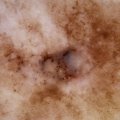
University of Queensland research has found people are more attracted to those who look like them.
Lead author and PhD student Amy Zhao from UQ’s School of Psychology studied hundreds of heterosexual participants during short speed-dating sessions.
“Our experiment consisted of 682 participants and 2,285 speed-dating interactions where participants of the opposite sex interacted for 3 minutes at a time,” Miss Zhao said.
“After each interaction participants rated each other on facial attractiveness, and kindness and understanding.
“We then analysed their facial images to calculate facial masculinity, averageness and similarity between interaction partners.”
Almost half of the interactions were with partners of the same ethnicity and the other half with partners of different ethnicities.
“We found that participants rated partners who had geometrically average faces and faces similar to their own as more attractive,” Miss Zhao said.
“Participants also received higher facial attractiveness ratings from partners of the same ethnicity, compared to those from a different ethnicity.
“Interestingly, people with similar facial features rated each other as appearing more kind, regardless of ethnicity.”
Miss Zhao said this is the first study to use face-to-face interactions where participants rate each other in person.
“These findings address major limitations in past studies which involved participants rating a series of photographs or computer-generated faces,” she said.
“Our findings suggest that faces that look similar spark a sense of kinship, causing people to feel comfort, familiarity and belonging with those who look like them.
“Better understanding of how people rate attractiveness, could assist with dating and forming romantic relationships.”
The research is a collaboration between UQ’s School of Psychology Centre for Psychology and Evolution and University of Stirling researchers.
The study is published in Evolution and Human Behaviour.
Media: Kirsten O’Leary, UQ Communications, k.oleary@uq.edu.au, +61 412 307 594 @UQHealth
.jpg)











